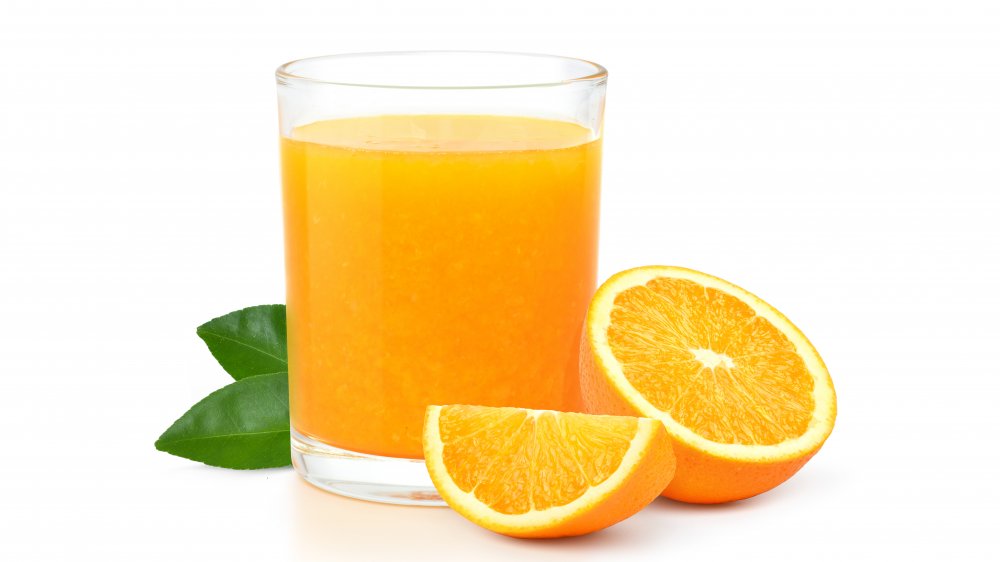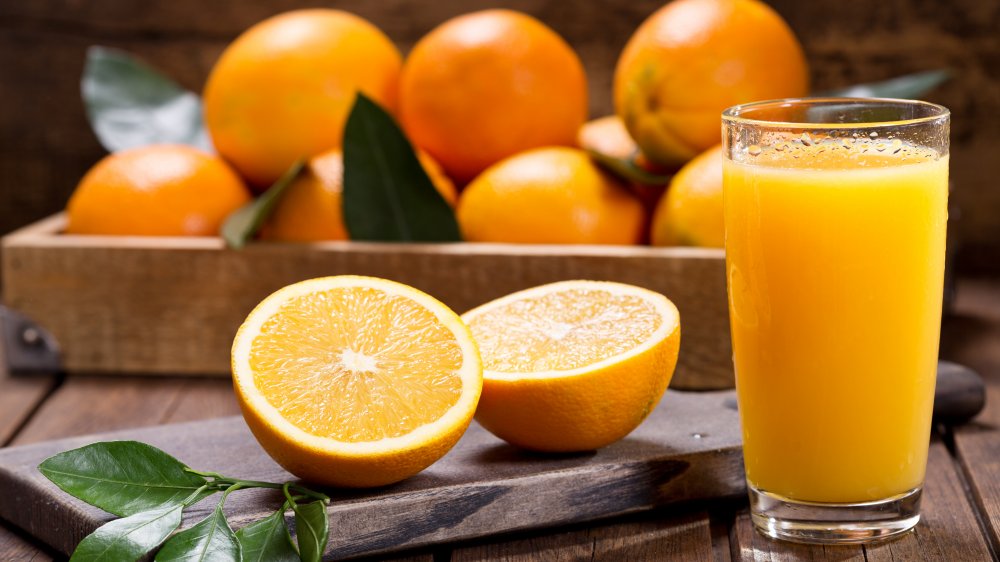This Is The Maximum Amount Of Orange Juice You Should Drink Each Day
It's the drink we've enjoyed either freshly squeezed or from concentrate. And while we've been conditioned to think orange juice is healthy, as with many things, there can actually be too much of a good thing.
How good orange juice is for you depends entirely on what the juice might have gone through before it made its way into your glass. Unless you bought oranges and squeezed the juice out yourself, commercial juice manufacturers first need to wash oranges properly before squeezing them, and then they subject the juice to a heat-pasteurization process to zap enzymes and microbes that might cause spoilage and deterioration. Water is then drawn out of juice which will be sold as frozen concentrate (via Healthline).
In order to understand what the extraction and preservation process does to orange juice, it may be helpful to compare one serving of orange juice (240 ml) with a medium orange, which weighs about 131 grams. Orange juice has 110 calories, of which 25.5 grams are carbs; 0.5 grams are fiber; 137 percent of the RDI for vitamin C; 11 percent of the RDI for folate; 2 percent of RDI for calcium, and 7 percent of the RDI for vitamin B6. A whole medium orange has 62 calories; 15 grams of carbs; 3 grams of fiber; 116 percent of the RDI for Vitamin C; 11 percent of the RDI for folate; 5 percent of the RDI for calcium; and 4 percent of the RDI for vitamin B6.
Orange juice is nutrient- and calorie-dense
The nutritional values for store-bought orange juice may seem high, but Healthline says the juice would be more nutritious if not for processing and storage, which can rob the juice of as much as 15 percent of vitamin C and 27 percent less folate.
While there is no question surrounding the nutritional value of orange juice, nutritionists have more of a problem with the juice's calorie content and what it packs. Livestrong says an 8-ounce serving of orange juice contains 110 calories, 96 calories of which come from sugar — making it only slightly less sugary than chocolate milk, soda, and energy drinks. As if this wasn't enough, nutritionist Jenny Bowden tells Livestrong that fructose — or the sugar found in juice — becomes fat much more quickly.
Given all this, it is probably best to avoid orange juice altogether — but if you can't, bear in mind that if, as a woman, you need 1,600 to 2,400 calories to maintain your weight, an 8-ounce glass of juice with 110 calories can already take up 3.6 to 6.9 percent of your daily intake, which means 8 ounces should be the most you can drink each day.

